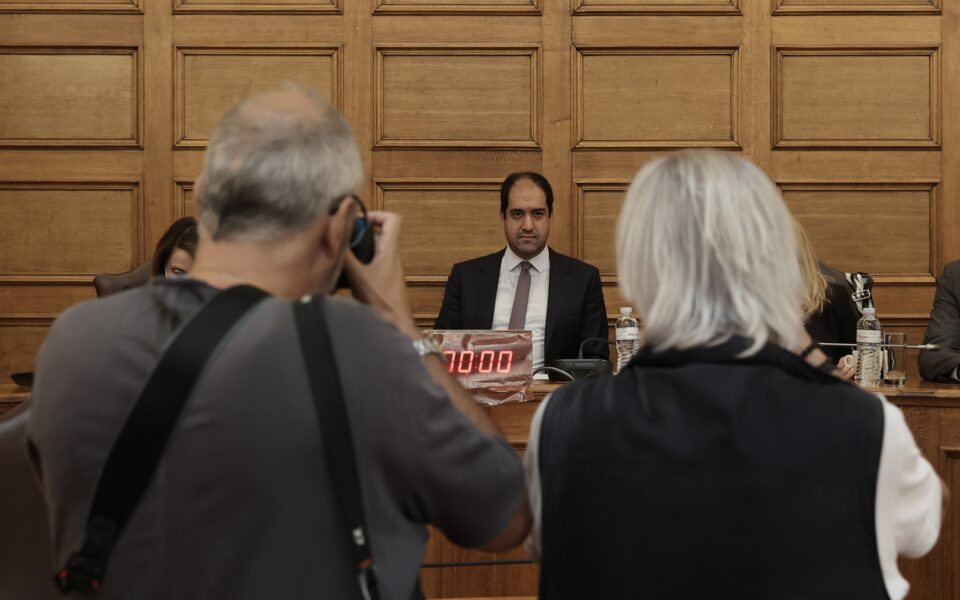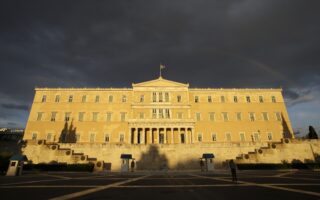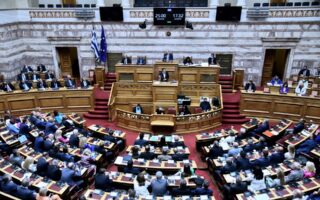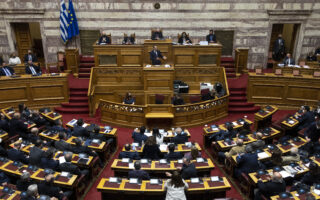Wiretaps and dangers

The wiretapping scandal and, in particular, the way it will be dealt with will weigh on any future developments.
This will depend on whether: (a) light is shed on the matter or if it will tarnish the tenure of Prime Minister Kyriakos Mitsotakis’ government, as well as (b), if it serves as an opportunity to tear down the barriers within the National Intelligence Service (EYP) preventing it from fulfilling its proper function or if, on the contrary, it ends up strengthening and buttressing these barriers.
The issue is already preoccupying rating agencies, which will decide whether Greek bonds will be lifted out of “junk” territory in 2023 or if the country will remain blocked from the international markets, in a relatively unpredictable global environment.
As far as fiscal policy is concerned, the budget is forecast to stay on target this year, largely due to inflation. Inflation, along with the successive hikes of prices at supermarkets, is boosting indirect tax revenues, due to the unchanged value-added tax rates. In addition, it helps improve the debt-to-gross domestic product ratio: Nominal GDP will grow by 8.5% due to inflation and real GDP another 4.5-5%, reaching 200 billion euros this year, about the same as in 2011.
What’s the other very good news? Inflation gnaws at the country’s debt. Having a fixed interest rate of around 2%, we pay just 2% interest for 250 billion euros of debt in the European Stability Mechanism (ESM) instead of the 8% we would pay if it was not fixed. This means savings of 15 billion euros in 2022, which is not bad at all.
Even if Europe decides on some worthwhile support measures for member-states, these will probably relieve state budgets
The problems will spill over into the next few years, starting in 2023, when Greece has agreed to produce a primary surplus of 1% of GDP. One can therefore assume that (based on time-honored Greek tradition) the fiscal tightening will begin immediately after the next elections, a development that will surprise and provoke reactions not only from the most vulnerable citizens, but also from the richer ones, who are used to collecting subsidies and are the fiercest claimants of their “rights.” That is the first risk.
Meanwhile, a large part of society, including the unemployed and people on low salaries, will have already gone through a difficult autumn. This year, the 700-euro wage of 2021 has become less than 500 – the value of work goes against the general rise in prices. And a lot of anger has amassed in society. This is the second danger.
Even if Europe decides on some worthwhile support measures for member-states, these will probably relieve state budgets – state spending on subsidies will be replaced by EU funds.
It is in this environment that the wiretapping scandal has erupted. It is said that society does not care about the scandal, that all it cares about are its economic problems. If this thought comforts some people, perhaps they underestimate the combined effect of the illegal wiretappings with all the other problems and, above all, the consequences of a moral contempt for those who are involved in, or tolerate such gangsterism.
At a difficult time, all this works to dilute politics and society. This is where foreign observers detect political risks. The government’s response to the wiretapping scandal may prove to be a catalyst for minimizing or magnifying those risks.
Minimizing the risks requires choosing the path of transparency. The surveillance of PASOK/KINAL leader Nikos Androulakis is deemed illegal, honest explanations are provided (who did it and why), the authorities investigate whether the conversations of other politicians were also intercepted, responsibilities are assigned and the status of EYP is changed.
The risks will be exacerbated if heads are buried in the sand: The secrecy vis-a-vis the parliamentary committee investigating the wiretapping and the far-right-inspired theories about the involvement of “dark” foreign powers alienate centrist voters and destroy any possibility New Democracy has of securing a parliamentary majority in the next elections, or a coalition government.
For the time being, this tactic makes us suspect that the “ostrich” has become vulnerable to pressure from all sides, be it trade unions, vested interests or party members – who speak or remain silent, depending on political bargains.





